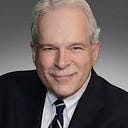The Skilled Clinician
It’s been over 45 years now since I entered medical school. It’s been over a year now since I retired from clinical practice. The changes I have witnessed and the various experiences I have had during this time have convinced me that the skills, talents, and competencies required of physicians today are much different than those taught in my era.
In my time, mastering basic sciences and honing diagnostic skills were the name of the game. My heroes were those who could come up with the correct diagnosis simply through a comprehensive history and physical exam. I remember as a resident presenting a case to the world-renowned cardiologist J. Willis Hurst (which I had practiced so much I could say it in my sleep) only to be stopped after the first line — “the patient was a 35-year-old African-American male”. “Stop!” barked Dr. Hurst, “show me the EKG”. After mapping out the vectors on the electrocardiogram, Dr. Hurst quickly came up with the obvious diagnosis that my patient had sarcoidosis of the heart. I was convinced I would never develop the clinical acumen I had seen demonstrated that day.
Over time, I did become what I would call a fair clinician. I made my share of mistakes, but my main problem was that I lacked the focus and perseverance to become a master clinician. I had many other areas to explore — particularly the business / economic aspects of medicine which remain my main topics of interest to this day.
I spent my last year in clinical practice working with academic hospital medicine specialists Emory at Grady Memorial Hospital in Atlanta. During that year, I realized that my younger colleagues had many capabilities that I lacked and were much more qualified to practice medicine in 2021 than I was. Some of them had technical skills, which I lacked, such as proficiency with bedside ultrasound exams. However, their real talent had to do with paying much more attention than I had ever done to the social determinants of health, which greatly affected the mostly indigent patient population we cared for at Grady.
Coming up with the right diagnosis today is actually fairly easy, given the advances over the last five decades in imaging, laboratory medicine, and access to a comprehensive medical record. It is actually much easier now to diagnose and treat a patient in the hospital than to find them adequate social support systems outside the hospital to prevent readmissions. This aspect of medical practice also challenged my young partners, but they were much more accepting than I that the primary clinician must address these needs. All the railing I did about how it was the social work services or the case managers' responsibility to do this seemed to them like I was wasting my breath. They realized that the physicians of the 21st century could not simply limit their patient services to diagnosis and treatment. Instead, they had to look at each patient from a much broader perspective and address those much more difficult issues that I felt uncomfortable confronting — poverty, homelessness, addiction, illiteracy, systemic racism, and so many others.
I still have my heroes and fond memories of practicing medicine at a time when diagnostic challenges put a physician’s cognitive skills to the test on a regular basis. That being said, I realize that I’ve become anachronistic and salute the young physicians of today who are brave enough to take on the many challenges of moving medicine forward into a completely different era.
